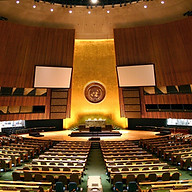afterSkool CCA
We offer a holistic approach to coaching students in all our classes, as we believe that communication skills are essential in developing a passionate and confident child.
Through these programs, students will be able to hone essential future-ready skills such as critical thinking skills, oratory skills and leadership skills, all while being coached by fun and friendly coaches. With a focus on fun, growth, and teamwork, we ensure that every participant develops skills that will set them up for success in any future challenge!

Oratory & Leadership
Development Programs
Intertext Education offers four co-curricular programs— Debate, World Scholars Cup, Model United Nations, and Public Speaking, designed to build critical thinking, global awareness, diplomacy, and communication skills. These programs empower students to excel as confident and impactful leaders.
Model United Nations
Comprehensive training to prepare participants for MUN conferences, focusing on key skills such as opening statements, public speaking, formal debate, and negotiation.

Semester 1 Focus Areas
Opening Statement Practice
Practical exercises to enhance public speaking and presentation skills in MUN:
-
Exercises such as impromptu speeches help delegates practice delivering impactful statements.
-
The "Five Good Reasons" exercise encourages delegates to provide multiple defenses for their positions.
-
Structured drills ensure participants refine their speech delivery for confidence and clarity.
Formal Caucus Notes
Training on participating in formal debates and moderated caucuses during MUN:
-
Formal caucuses are structured discussions that focus on specific sub-topics of a debate.
-
Delegates learn to navigate time limits, engage in focused discussions, and contribute effectively.
-
Resources like the MUN Preparation Guide provide a clear outline of moderated caucus procedures.
Public Speaking
This program equips participants with the essential skills, confidence, and strategies needed to excel in the World Individual Debating and Public Speaking Championships (WIDPSC).

Semester 1 Focus Areas
Understanding WIDPSC Standards
Gain in-depth knowledge of the WIDPSC format, including Debating, Impromptu Speaking, Interpretive Reading, and Prepared Speeches:
-
Learn the rules, scoring criteria, and event-specific expectations.
-
Develop speeches with clear introductions, coherent bodies, and impactful conclusions.
-
Refine delivery techniques, including voice modulation, pacing, and effective use of body language.
Developing Persuasive and Informative Skills
Hone the ability to craft compelling arguments and informative content
-
Use evidence and techniques that align with WIDPSC’s competitive standards.
-
Build the skill to think on your feet for impromptu speaking.
-
Practice delivering structured and coherent responses under time constraints.
World Scholar’s Cup Debate
Semester 1 will emphasize Setup and Case Building, with particular attention to developing the roles of Speaker 1 and Speaker 2. This foundation is crucial for understanding and presenting compelling cases, setting the stage for success in debates.

Semester 1 Focus Areas
The Importance of Setup
Gain in-depth knowledge of the WIDPSC format, including Debating, Impromptu Speaking, Interpretive Reading, and Prepared Speeches:
-
Explaining who will be affected by a proposal or opposition.
-
Highlighting the importance of arguments through clear identification of stakeholders.
-
Helping judges understand the context and characteristics of the people involved.
Realistic Argumentation
Developing the ability to present balanced and realistic arguments without resorting to exaggeration or hyperbole:
-
Avoiding exaggerated claims, such as assuming catastrophic outcomes for every policy change.
-
Learning to realistically assess and highlight harms and benefits in arguments.
-
Using practical examples, such as discussing the effects of a carbon tax without overstating its consequences.
Debate
Mastering argumentation involves structuring ideas logically, defining terms clearly, conveying concepts effectively, and deepening analysis through questioning.

Semester 1 Focus Areas
AREL Structure
Use the Assertion, Reasoning, Evidence, and Link-back framework to construct coherent arguments:
-
Define key terms with precision to avoid ambiguity.
-
Contextualize definitions to suit the topic and establish common ground with opponents.
-
Simplify complex concepts for better understanding.
-
Use analogies and logical sequencing to illustrate and build ideas effectively.
Elaborate Through Questioning
Apply Socratic questioning to explore assumptions and implications:
-
Use elaborative interrogation to connect ideas and encourage critical analysis.
-
Promote evaluative thinking to assess the strength of arguments.







